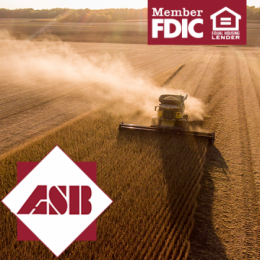
As a young adult, filing your taxes for the first time can be a daunting task. You may have heard horror stories about complicated forms, missed deadlines, and hefty fines. But don't worry, we're here to guide you through the process and make it as smooth as possible.
Why You Need to File Taxes
As a responsible citizen, it's essential to file your taxes to:
- Report Your Income: Let the government know how much you've earned and what taxes you've paid.
- Claim Your Refund: If you've overpaid your taxes, you might be eligible for a refund.
- Avoid Penalties: Failing to file your taxes can result in fines and penalties.
- Build Credit: Filing your taxes can help you establish or improve your credit score.
Gathering Essential Documents
Before you start filing, make sure you have the following documents:
- W-2 Forms: Provided by your employer, these forms show your income and taxes withheld.
- 1099 Forms: If you're self-employed or have freelance income, you'll receive these forms.
- Interest Statements: If you have a savings account or investments, you'll need these statements.
- Receipts for Deductions: Keep receipts for charitable donations, education expenses, and other deductions.
Choosing the Right Filing Status
Your filing status determines which tax forms you'll need to fill out and how much you'll pay in taxes. The most common filing statuses for first-time filers are:
- Single: If you're not married and don't have dependents.
- Dependent: If you're claimed as a dependent on someone else's tax return, which is most likely your parents or guardians.
Filing Options
You have two main options for filing your taxes:
- E-file: Electronic filing is fast, convenient, and accurate. You can use tax software like TurboTax or H&R Block.
- Paper File: If you prefer to file by mail, make sure to use the correct forms and follow the instructions carefully.
Tax Credits and Deductions
As a first-time filer, you might be eligible for certain tax credits and deductions, such as:
- Earned Income Tax Credit (EITC): If you have a low to moderate income, you might qualify for this credit. Click here to learn more!
- Education Credits: If you're pursuing higher education, you can claim credits for tuition and fees. Learn more details to see if you qualify! How do Education Tax Credits Work? - TurboTax Tax Tips & Videos
- Charitable Donations: Donations to qualified organizations can be deducted from your taxable income. Here’s more information, see if you qualify! Charitable Donations: What's Tax-Deductible, What's Not - NerdWallet
Filing Deadlines and Penalties
Don't miss the filing deadline! The IRS typically sets the deadline for April 15th. If you miss the deadline, you might face:
- Late Filing Penalties: A fee for filing late, which can be up to 5% of your unpaid taxes.
- Late Payment Penalties: A fee for not paying your taxes on time, which can be up to 0.5% of your unpaid taxes.
Seeking Help
If you're feeling overwhelmed, consider seeking help from:
- Tax Professionals: Certified public accountants (CPAs) or enrolled agents (EAs) can guide you through the process.
- Tax Software: Many tax software programs offer free or low-cost options for simple returns.
- IRS Resources: The IRS website (irs.gov) has a wealth of information and resources to help you file your taxes.
Get Started Today!
Filing your taxes for the first time might seem intimidating, but with the right guidance, you'll be able to navigate the process with ease. Remember to gather your documents, choose the right filing status, and take advantage of tax credits and deductions. If you need help, don't hesitate to seek it out.
Don't wait until the last minute! Start gathering your documents and filing your taxes today.
Disclaimer: This blog is for informational purposes only and does not constitute financial or tax advice. Please consult with a certified tax advisor or financial professional for personalized advice regarding your specific situation.
January 21, 2025 by American State Bank









